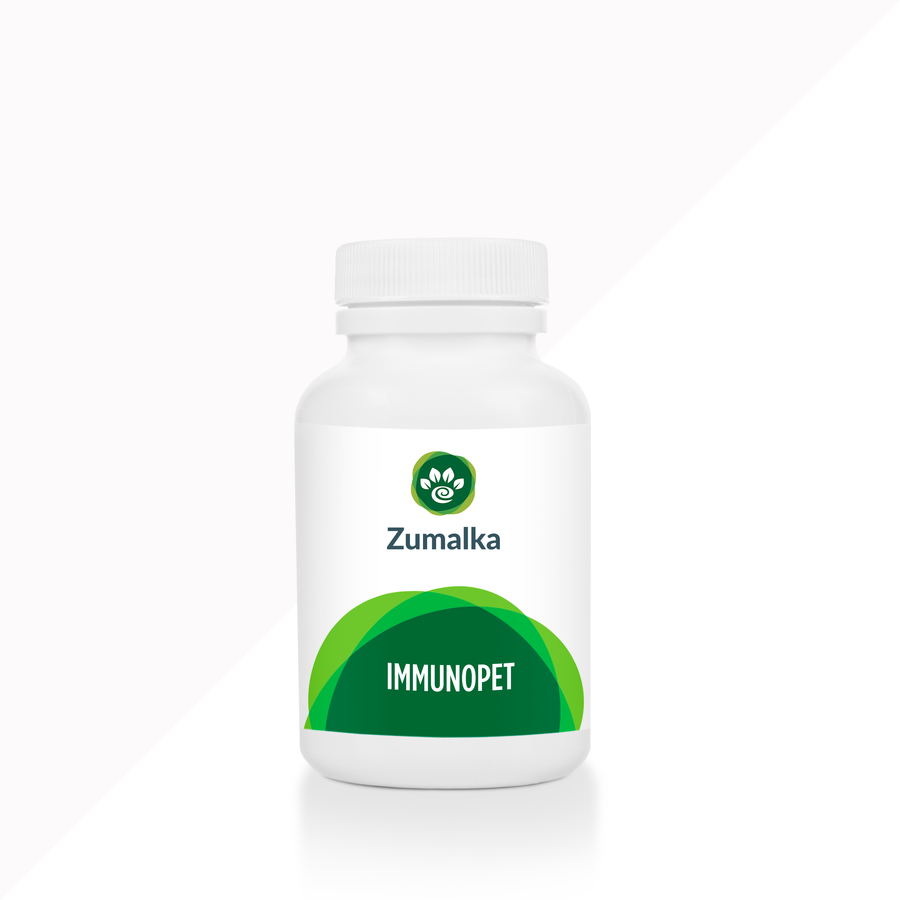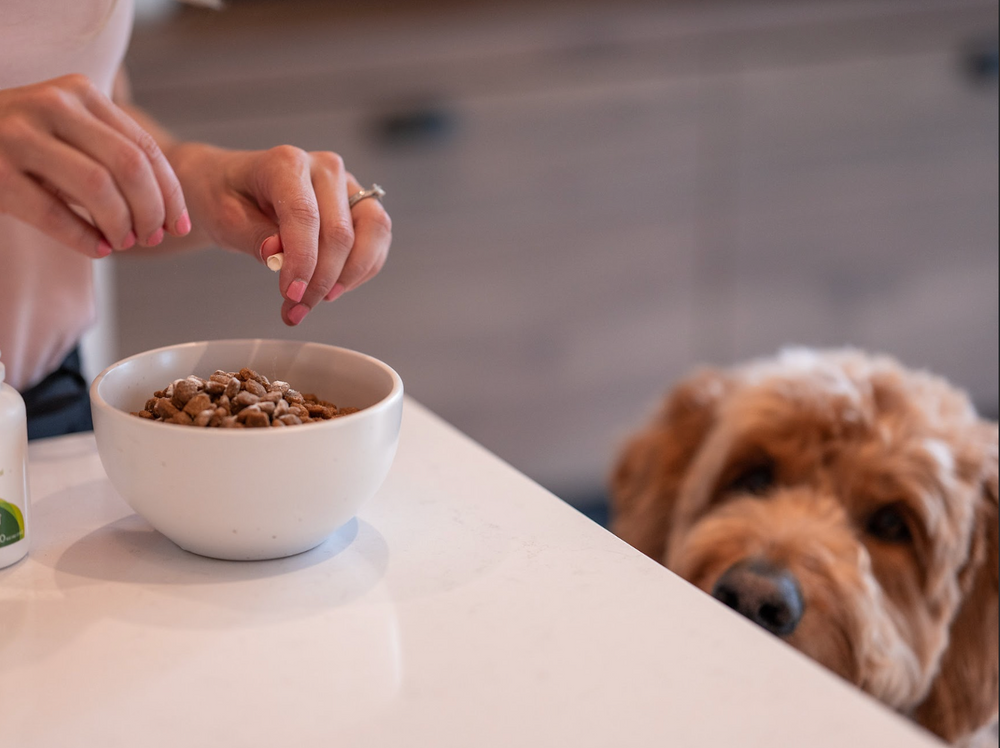Natural Cat IBD Treatments: Vet-Approved Guide to Gut Health
While cats don’t suffer from IBS like humans do, they can develop a similar condition called inflammatory bowel disease (IBD).
In this article, I’ll explain the key differences between these two issues and discuss the treatment options to consider when managing cats inflammatory bowel disease.
Cats Inflammatory Bowel Disease Explained By a Vet

Inflammatory bowel disease (IBD) is a common condition, especially in older cats. This chronic enteropathy leads to persistent gastrointestinal inflammation. Here's a more detailed explanation:
The digestive tract has multiple layers: a muscular layer that moves food through the intestines, a layer that absorbs nutrients and fluids, and a connective tissue layer containing blood vessels, nerves, and lymphatics.
Inflammatory bowel disease in cats may have various causes, but experts believe the underlying issue is often a defect in the intestinal barrier. This could result from a weakened immune system. Inflammatory cells infiltrate the gastrointestinal tract more easily when this happens.
Feline IBD Differs Significantly from IBS
It’s important to emphasize that IBD (Inflammatory Bowel Disease) is not the same as IBS (Irritable Bowel Syndrome).
IBS typically leads to colitis, often accompanied by occasional bloody diarrhea, and is commonly triggered by stress, whereas IBD involves chronic inflammation of the gastrointestinal tract and has different underlying causes.
IBS is recognized in humans and sometimes in dogs, but it’s not a condition seen in cats. IBD, on the other hand, involves an uncontrolled overstimulation of the immune system, which over time leads to chronic inflammation in the gastrointestinal tract.
Moreover, IBD can be triggered by various factors, including diet, parasites, and bacterial infections. In some cases, cats may develop idiopathic IBD, where the cause remains unknown.
Symptoms of Inflammatory Bowel Disease in Cats
IBD typically affects middle-aged and older cats, and the Siamese breed has a known genetic predisposition to this chronic enteropathy in the gastrointestinal or GI tract. Typical clinical signs of IBD in cats include:
- Chronic weight loss over several weeks to months
- Changes in appetite, ranging from decreased appetite to no change at all
- Chronic diarrhea, sometimes with blood and mucus in the stool
- Chronic vomiting
Diagnosing Feline IBD is Not Easy

Diagnosing feline IBD is no easy task. Veterinarians must follow several diagnostic steps to determine whether feline IBD is responsible for a cat's chronic vomiting and diarrhea.
Below is an overview of some diagnostic tests your veterinarian may choose to perform:
- Baseline blood test – A baseline blood test helps assess for anemia, white blood cell count abnormalities, and signs of liver disease. Cats with IBD may exhibit mild anemia, low albumin levels, and low protein due to gastrointestinal blood loss. Additionally, concurrent conditions such as pancreatitis or cholangiohepatitis (a type of liver disease) may also be present.
- Abdominal Ultrasound – This is one of the most valuable diagnostic tools for identifying IBD in cats. An ultrasound may reveal thickening of the intestinal wall, a sign of gastrointestinal inflammation, as well as enlarged lymph nodes within the intestines. During this examination, your veterinarian will also check for the presence of neoplasia (cancer).
- Vitamin B12 (Cobalamin) and Folate – This specialized blood test measures the levels of vitamin B12 and folate in the serum. Inflammation of the small intestine can impair nutrient absorption, especially vitamin B12.
- Intestinal Biopsy for Histopathology – This procedure involves taking a sample of inflamed intestinal tissue and examining it under a microscope. A biopsy is the only definitive way to confirm whether your cat has inflammatory bowel disease.
How I Treat Feline IBD?

Managing inflammatory bowel disease (IBD) in cats can be complex. Veterinarians often start with low-intervention treatments, such as B12 supplementation and dietary trials, before progressing to higher-intervention options like immunosuppressive therapy.
It's important to note that veterinarians may use a combination of treatments. Below are some examples of the options they may consider:
- Option 1: B12 supplementation alone, with close monitoring of the cat's response.
- Option 2: B12 supplementation combined with a dietary change, such as a novel protein or hydrolyzed diet. This dietary therapy trial may last several weeks.
- Option 3: If the dietary trial is unsuccessful, veterinarians may introduce antibiotics alongside the dietary change and B12 supplementation.
- Option 4: If antibiotics are ineffective, your veterinarian may introduce more potent immunosuppressive drugs, such as steroids, along with B12 supplementation, probiotics, and additional dietary modifications.
Vitamin B12 Supplementation
Cats diagnosed with IBD are often low in B12. I typically begin supplementation with subcutaneous B12 injections, administered once a week for 6 weeks, then every other week for 6 doses, followed by maintenance injections once or twice a month.
Dietary Modification
If inflammatory bowel disease (IBD) is suspected in a cat, dietary management is crucial.
I recommend switching to a novel protein diet, such as kangaroo, duck, or venison, or using a prescription hydrolyzed diet. It may take 1 to 2 weeks on the new diet to notice an improvement in the cat's symptoms.
If there is improvement, I may reintroduce the previous diet to see if the cat’s symptoms return. If they do, it confirms that the inflammatory bowel disease was triggered by the original protein source, a condition known as food-responsive enteropathy.
Fenbendazole
Intestinal parasites, such as whipworm and Giardia, can trigger inflammation in the gastrointestinal tract. For this reason, it’s standard practice for veterinarians to prescribe a short course of broad-spectrum dewormers (anthelmintics).
Fenbendazole is one of the most common and effective dewormers for cats. It’s highly effective and has minimal side effects.
Immune Suppression through Corticosteroids
IBD in cats is essentially an immune system overreaction to something in the body.
This response leads to uncontrolled gastrointestinal inflammation, which can severely impact the cat's health. In moderate to severe cases, immunosuppressive drugs like prednisolone are prescribed to reduce inflammation in the intestinal tract.
Probiotics and Prebiotics
Selecting the right probiotics and prebiotics can offer significant benefits for gut health. Although there is limited evidence supporting their use in veterinary medicine, many veterinarians still routinely recommend them for the following purposes:
- Restoring balance in the gut microbiota
- Supporting beneficial bacteria in outcompeting harmful bacteria
- Enhancing the barrier function of the intestinal lining
- Promoting the production of natural antimicrobial substances to fight infections
Homeopathic Remedies to Promote Good Gut Health

Did you know that homeopathy and modern medicine can often complement each other well? When it comes to IBD in cats, our homeopaths recommend the following products.
Zumalka PIPTOPET
Let me introduce you to PIPTOPET, a natural immune booster specially formulated for pets.
Made with the potent Fomitopsis betulina mushroom (formerly known as Piptoporus betulinus), PIPTOPET is designed to enhance the well-being and vitality of your cherished furry companions, whether they are cats, dogs, or other pets.
In addition to boosting immune system health, PIPTOPET promotes overall well-being, helping your pet enjoy a higher quality of life and increased comfort.
Zumalka PROBIOPET
Looking to enhance your cat’s well-being with a high-quality, all-natural homeopathic probiotic? Look no further than Zumalka’s PROBIOPET. With over 100 billion live bacteria, PROBIOPET is expertly formulated to support digestive health, restore gut balance, and strengthen immune function.
Zumalka LOOSE STOOLS
Zumalka’s LOOSE STOOLS is a premium, natural product designed to ease your pet’s digestive issues.
In addition to improving stool consistency, LOOSE STOOLS contains potent natural ingredients like Antimonium Crudum 30k, Arsenicum Album 30k, and Carbo Vegetabilis 30k. These ingredients not only promote gastrointestinal health but also help alleviate chronic vomiting and nausea.
In Conclusion
IBD in cats is certainly one of the more challenging feline diseases to manage. While it may not always be straightforward to treat, it can be effectively controlled. With proper management, cats with IBD can lead healthy, long lives. If you have any questions about IBD in cats, feel free to reach out to us!







Leave a comment